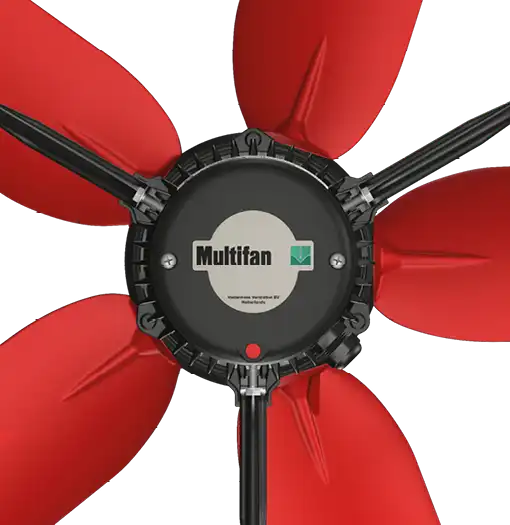For optimal fan efficiency, it is important to keep the fan clean. Because dirt accumulating on the impeller reduces both performance and efficiency. In addition, dust on the impeller can cause an imbalance, which ultimately has a negative effect on the lifespan of a fan. It is also recommended to keep any wire guards and/or shutters clean. A shutter that cannot move freely due to dust accumulation, or a dirty wire guard can cause a significant increase in air resistance, reducing the efficiency of the fan. In addition, if you are cleaning anyway, it is better to clear the motor of dust as well. This way, the motor can better dissipate its heat, which extends its lifespan.
Dry cleaning a fan
Our fans are suitable for both dry and wet cleaning. Dry cleaning is done using a soft brush or cloth. Do not use aggressive cleaning agents. This prevents the fan from being damaged during maintenance.
Wet cleaning a fan
Wet cleaning is done using a low-pressure water jet. Clean the fan in the correct order:
- Cover all open condensate drain holes (condensate plugs) in the motor with the red condensate drain plugs (condensate plugs) provided.
- Spray the fan with a low-pressure water jet, but try to spare electrical parts and bearings.
- After rinsing, remove the condensate plug located at the lowest point in the fan. This will allow any water or condensation that may have entered the motor during maintenance to escape.
- Turn on the fan for at least 2 hours. The heat of the motor will cause condensation to evaporate inside the motor, which will prevent oxidation in the motor.
Thanks to these simple steps, you will improve the efficiency of the fan and prolong its life. If you notice wear on the fan during maintenance, just scan the QR code for a list of spare parts, or contact our customer service team.




